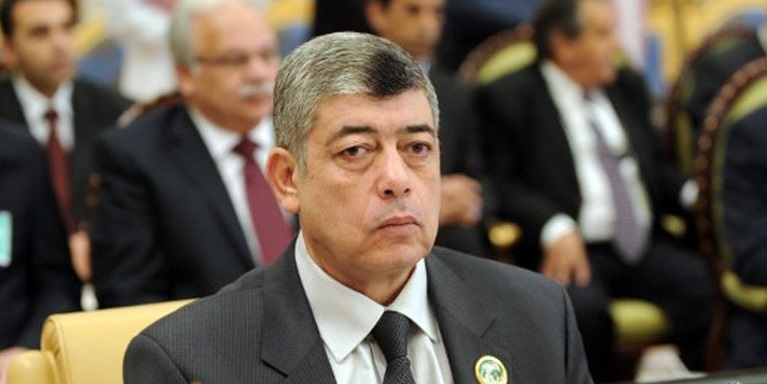
Damascus (AFP) – Syria’s vice president said in comments published on Monday that a clear winner was unlikely to emerge from the 21-month conflict, as United Nations chief Ban Ki-moon voiced alarm at escalating bloodshed.
Faruq Al-Shara, quoted in a pro-Damascus Lebanese newspaper, also said he preferred a negotiated solution to the civil war, a position at odds with President Bashar Al-Assad.
His remarks came as Syrian warplanes pounded eastern Damascus and as residents fled renewed clashes at a Palestinian camp in the capital – bombed for the first time on Sunday by regime aircraft.
“No opposition can end the battle militarily, just as the security forces and army cannot achieve a decisive conclusion,” Shara, the most prominent Sunni Muslim in Assad’s Alawite minority-dominated regime, told Al-Akhbar newspaper.
“Every day that passes, we are moving further away from a military or political solution.”
“Those who have the chance to meet the president will hear from his mouth that this promises to be a prolonged conflict, essentially a grand conspiracy hatched by several parties,” said Shara.
“[Assad] does not hide his desire to press on militarily until the final victory [and he believes that] after this, political dialogue will actually still be possible.”
Shara said he believed the solution to the crisis “must be Syrian” but involving key regional countries and UN Security Council member states which can then lead to forming a “national unity government with broad powers.”
Shara, 74, has served the regime for decades, both under Assad and his father and predecessor Hafez, but has been seen in public only a few times since the uprising erupted in March last year.
Iran and Turkey on Monday also offered their own proposals aimed at ending the conflict.
Tehran’s six-point plan includes an immediate halt to violence under UN supervision, lifting sanctions against Syria, freeing political prisoners and a dialogue to form a transitional government to organise free elections.
However, Arab and western nations, including the United States, reject any Iranian involvement in the crisis, saying Tehran is discredited over its unwavering support for Assad.
Ankara called for Assad to step down within the first three months of 2013 and for the transition to be overseen by the opposition National Coalition, the Turkish Radikal newspaper reported.
Turkey, once an ally of the Damascus regime, has become a fierce critic of Assad’s crackdown on the rebellion, in turn also straining its ties with Iran.
Iranian President Mahmoud Ahmadinejad cancelled a planned Monday visit to Turkey, his office said a day after his foreign minister warned Ankara over hosting Patriot missiles on its border with Syria.
On Sunday warplanes bombed the Palestinian Yarmuk refugee camp in Damascus, prompting the UN’s Ban to express alarm.
“The secretary general is alarmed by the continued dramatic escalation of violence in Syria over the past several days, and the grave danger facing civilians in areas under fire,” UN spokesman Martin Nesirky said.
The Syrian Observatory for Human Rights said the strikes killed at least eight civilians in Yarmuk.
Residents said several people in the camp fled on Monday as new clashes erupted between rebels and the pro-regime Popular Front for the Liberation of Palestine-General Command.
One resident, Issam, said he was unable to return home on Sunday to Yarmuk “because of the fighting that took place in most of the streets and the snipers.” On Monday he took his wife and children to stay with relatives near Damascus.
Sunday’s strikes hit the Abdel Qader Husseini Mosque, a makeshift shelter for some 600 people forced to flee violence, activists said.
Palestinian President Mahmud Abbas said the bombing of refugee camps “must be stopped immediately,” while the Islamist Hamas movement condemned the air strike as a “crime.”
Nationwide, at least 160 people were killed on Sunday, including 85 civilians, said the Observatory, which puts the overall death toll from the conflict at more than 43,000.


